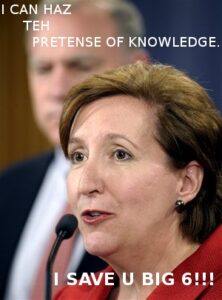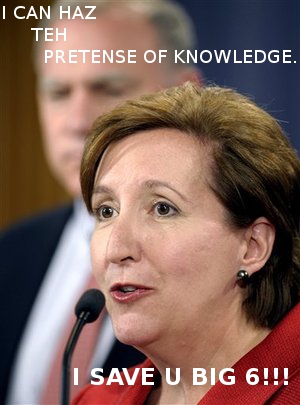

It's been a news-heavy month. Here are a few more tidbits:
- Yesterday, Tor/Forge announced that it will make all of its ebooks completely free of DRM by early July 2012. This is a momentous and welcome change. Tor/Forge is a genre imprint of Macmillan, one of the Big Six publishers. It's the first of these publishers to cave to author and cusotmer pressure on DRM. It may have helped that Macmillan is not a publicly traded company. Cory Doctorow believes more Big Six publishers are sure to follow; he's “had contact with very highly placed execs at two more of the big six publishers.”
- Last month, James Cameron promoted private deep-sea exploration. He's also partnered with Google's Larry Page and Eric Schmidt, and Ross Perot Jr., to back private space company Planetary Resources. Immediate plans are to design and build low-cost robotic spacecraft for survey missions. The firm, founded and chaired by Peter Diamondis (creator of the X-Prize Foundation) and Eric Anderson, hopes to then build on this technology and begin mining Near-Earth Asteroids (NEAs) within the next ten years. For an extended explanation of how and why Planetary Resources can succeed, read Phil Plait's post on the Bad Astronomy blog. We live in exciting times for the exploration and exploitation of space.
[continue reading…]
Help Promote Prometheus Unbound by Sharing this Post

DoJ Assistant AG Sharis Pozen

DoJ Assistant AG Sharis Pozen
Jeffrey Tucker recently discussed the Department of Justice's decided to launch antitrust litigation against Apple and five of the Big Six publishers — Hachette, HarperCollins, Macmillan, Penguin, and Simon & Schuster, but not Random House — for alleged price fixing. Three of them — Hachette, HarperCollins, and Simon & Schuster — decided on the same day to settle straight away. The alleged sin was that Apple and the publishers decided to go with the agency pricing model in which the publishers get to set the prices for their books in the iBooks Store, while Apple takes a 30% cut.
As you'd expect, I'm with Jeffrey Tucker in believing that price fixing, collusion, cartels should not be illegal. In a free market, these practices are not stable and will end up harming the companies in the long run if they dissatisfy customers. What I want to highlight in this news post is not what so much what libertarian justice has to say about the matter but some bad economic-tech journalism about the business side.
I recently read this article on Mashable by Lance Ulanoff, the site's Editor-in-Chief:
“How Steve Jobs Got Apple Into Trouble Over Ebooks.”
Wow, is this guy clueless.
And if Steve Jobs really thought Amazon screwed up in alienating major publishers by not adopting the agency model, he was clueless as well. Amazon is WINNING.
Jobs pushed the agency model on the publishers? I don't think so. They preferred that model but couldn't get Amazon to go along with it without Apple's help. It's the screw-your-customers model and it wouldn't have been good for the publishers over the long haul. They want high ebook prices so that they can hang onto their outdated IP-dependent business model of selling paperbacks and hardcovers in big-box brick-and-mortar stores for as long as possible.
That antiquated business model is particularly insane in the United States. The origin of the current wasteful publisher/brick-and-mortar bookstore relationship is fascinating. The strip-and-return system has its origin in the Great Depression (thanks Fed!).
[continue reading…]
Help Promote Prometheus Unbound by Sharing this Post




